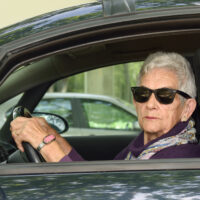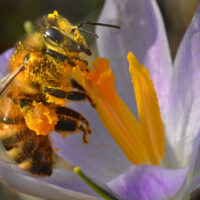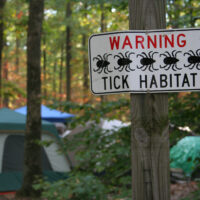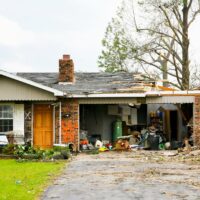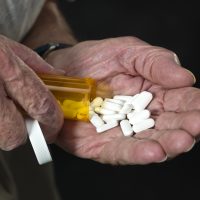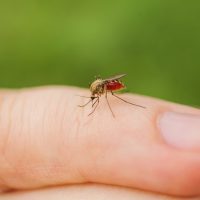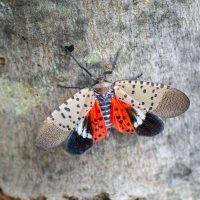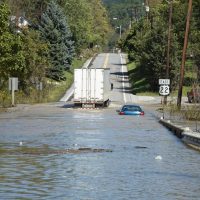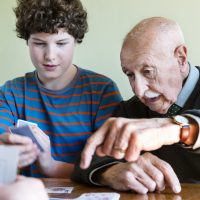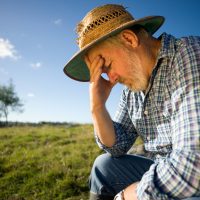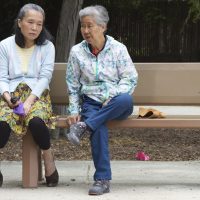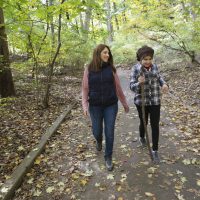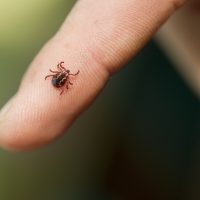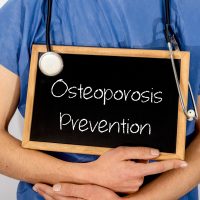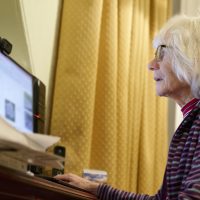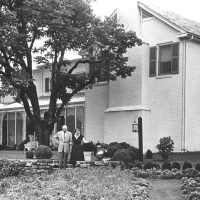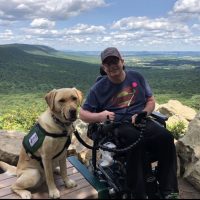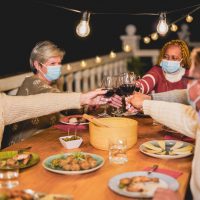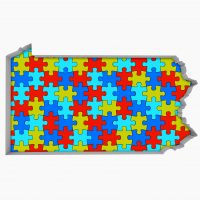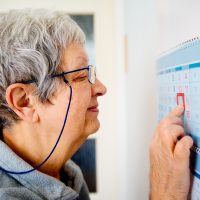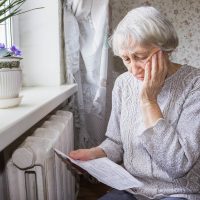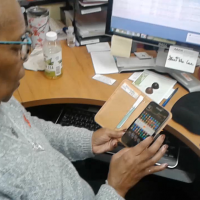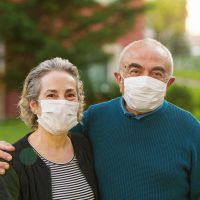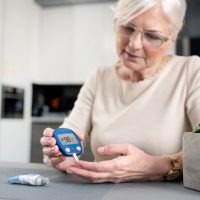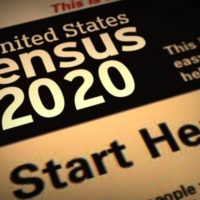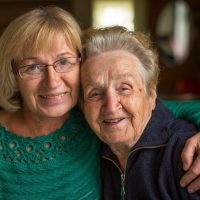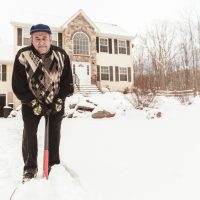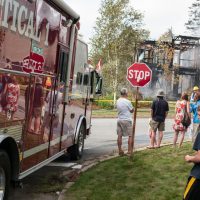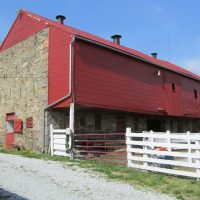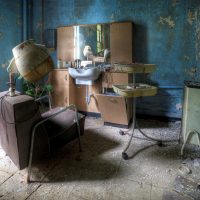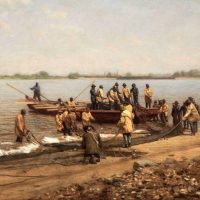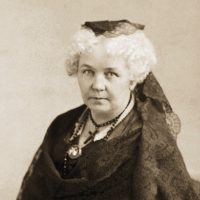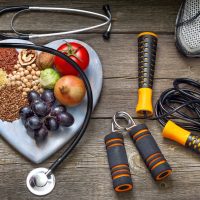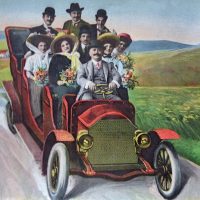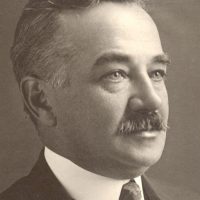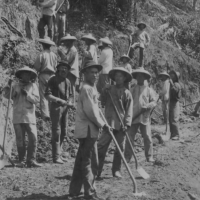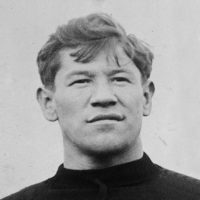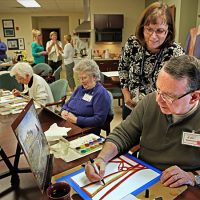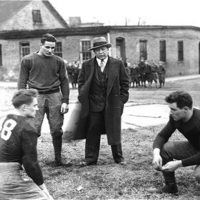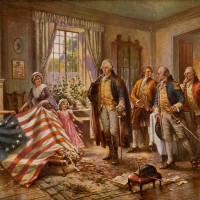You must be logged in to access this content. Please log in here.
All Lectures
Thoughts from the Secretary about MindMatters...
Lecture Catalog
The Rise and Fall of the Pennsylvania Railroad, Part 2
Category: Season 11
James Bennet, Friends of the Railroad Museum of Pennsylvania
Jim Bennett is a lifelong rail fan and comes from a railroad background. Both his grandfathers worked on the Pennsylvania and Western Maryland Railroads. Jim has served as a member of the Railroad Museum of Pennsylvania Visitors Services Department for many years. In addition, he is a member of the Board of Directors for the Friends of the Railroad Museum of Pennsylvania.
This engaging session provides an insightful overview of the Pennsylvania Railroad’s history, highlighting how its growth and innovations shaped the nation’s development and economy in the late 19th and early 20th centuries. We’ll explore the key factors behind its success, from its vast network to technological advancements, and how they helped propel the country forward. The session also covers the dramatic 1962 merger with its rival and the financial struggles that led to its bankruptcy two years later, offering a fascinating look at the rise and fall of one of America’s most influential railroads.
The Rise and Fall of the Pennsylvania Railroad, Part 1
Category: Season 11
James Bennet, Friends of the Railroad Museum of Pennsylvania
Jim Bennett is a lifelong rail fan and comes from a railroad background. Both his grandfathers worked on the Pennsylvania and Western Maryland Railroads. Jim has served as a member of the Railroad Museum of Pennsylvania Visitors Services Department for many years. In addition, he is a member of the Board of Directors for the Friends of the Railroad Museum of Pennsylvania.
This engaging session provides an insightful overview of the Pennsylvania Railroad’s history, highlighting how its growth and innovations shaped the nation’s development and economy in the late 19th and early 20th centuries. We’ll explore the key factors behind its success, from its vast network to technological advancements, and how they helped propel the country forward. The session also covers the dramatic 1962 merger with its rival and the financial struggles that led to its bankruptcy two years later, offering a fascinating look at the rise and fall of one of America’s most influential railroads.
Why Railroads are Still Important Today Part 2: Freight Trains
Category: Season 11
James Bennet, Friends of the Railroad Museum of Pennsylvania
Jim Bennett is a lifelong rail fan and comes from a railroad background. Both his grandfathers worked on the Pennsylvania and Western Maryland Railroads. Jim has served as a member of the Railroad Museum of Pennsylvania Visitors Services Department for many years. In addition, he is a member of the Board of Directors for the Friends of the Railroad Museum of Pennsylvania.
In an era of planes and automobiles, perhaps we take railroads for granted. Railroads have long played a significant role in the history of our country. For the past 194 years, the growth of our nation can be attributed, in large part, to the hundreds of railroads that crisscross the United States. Railroads provided economic opportunities, opened the West, developed towns and communities, and were the primary mover of goods and passengers across the country until the era of the interstate highway system and jet transportation. Following the decline of railroads in the 1950s through the 1970s, railroads have since experienced a resurgence in their importance for both passenger and commercial (freight) service. This resurgence continues today. In this presentation, we will explore the history and future of railroads and their importance in 21st-century America.
Why Railroads are Still Important Today Part 1: Passenger Trains
Category: Season 11
James Bennet, Friends of the Railroad Museum of Pennsylvania
Jim Bennett is a lifelong rail fan and comes from a railroad background. Both his grandfathers worked on the Pennsylvania and Western Maryland Railroads. Jim has served as a member of the Railroad Museum of Pennsylvania Visitors Services Department for many years. In addition, he is a member of the Board of Directors for the Friends of the Railroad Museum of Pennsylvania.
In an era of planes and automobiles, perhaps we take railroads for granted. Railroads have long played a significant role in the history of our country. For the past 194 years, the growth of our nation can be attributed, in large part, to the hundreds of railroads that crisscross the United States. Railroads provided economic opportunities, opened the West, developed towns and communities, and were the primary mover of goods and passengers across the country until the era of the interstate highway system and jet transportation. Following the decline of railroads in the 1950s through the 1970s, railroads have since experienced a resurgence in their importance for both passenger and commercial (freight) service. This resurgence continues today. In this presentation, we will explore the history and future of railroads and their importance in 21st-century America.
How Well Do We Know the Rules of the Road?
Category: Season 11
Fritzi Schreffler, PA Department of Transportation
Fritzi Schreffler is the Safety Press Secretary for the Pennsylvania Department of Transportation. PennDOT oversees programs and policies affecting highways, urban and rural public transportation, airports, railroads, ports, and waterways.
Matthew D. Frampton, South Central PA Highway Safety
Matt Frampton is a former Pennsylvania State Police Trooper. He is now with South Central PA Highway Safety (SCPAHS). SCPAHS’s mission is to prevent injury and/or death on Pennsylvania’s highways through traffic safety education for the public
Approximately 25% of Pennsylvania drivers are 65 or older. The Pennsylvania Department of Transportation recognizes the importance of Safety for our aging drivers. As Pennsylvania’s population ages, more people will be on the roads. PennDOT wants to make sure that older drivers have the cognitive abilities, physical abilities, and visual abilities to make things safer. While growing older does not necessarily constitute a safety risk, older drivers and their families should take the necessary precautions. This MindMatters talk highlights safe practices for older drivers and addresses the limitations they can face.
A Honey Bee’s Life
Category: Season 11
Tags: environment, hobbies
Denny Gorman, Certified Master Beekeeper & Vice President of the Lancaster County Beekeepers Society
Denny Gorman works to introduce novices to beekeeping and offers opportunities for learning for anyone who has an interest in honey bees and beekeeping. He has retired from a career in sales, marketing, and advertising where he spent many years on the national circuit as a professional speaker, trainer, and presenter. He and his wife Beth are the owners of Indian Marker Hives in Conestoga, Pennsylvania.
This entertaining and educational presentation explores the daily life of a honey bee, Apis mellifera. Follow her as she grows from egg to honey-producing forager. See the world through all 5 of her eyes. Understand her role in the pollination of more than 1/3 of all we eat. Learn why bees are important to humans, and some amazing facts about the intelligence and capability of these vital little insects and the golden liquid they produce.
The Sun!
Category: Season 10
Tags: environment, hobbies, science
Lou Thieblemont, Viking Resident Astronomer
Lou Thieblemont pursued his interest in astronomy throughout his 30-plus-year airline piloting career and into his retirement, serving as the Astronomical Society of Long Island’s program director, the Astronomical Society of Harrisburg’s vice president, and the Museum of Scientific Discovery’s board member. He now produces astronomy-related educational talks for various organizations.
This is a light-hearted presentation on how the Sun works. Using everyday terminology, Lou explains how our Sun converts the simplest atom, Hydrogen, into Helium. He also shares how the Sun’s power gives us what we need to sustain life here on earth.
Ticks of Pennsylvania
Category: Season 10
Tags: environment, health, safety, science
Emily Struckhoff, Vector-Borne Disease Program Specialist
Emily is an Education Program Specialist on Penn State Extension’s Vector-Borne Disease Team. She received her B.S. in Biology from Saint Louis University and M.S. in Entomology from the University of Illinois Urbana-Champaign. At Penn State Extension, Emily develops and delivers programming about vectors, such as ticks and mosquitoes, throughout the state, and she is passionate about helping the people of Pennsylvania protect themselves from vector-borne diseases.
If you have spent time outdoors in Pennsylvania, you have probably encountered ticks. However, did you know that there are many species of ticks found within the state, and that different ticks can cause different diseases? In this presentation, attendees will learn about the most common ticks in Pennsylvania and how to prevent tick bites.
Additional Resources:
News, Views, and Attitudes Part 3: How Mainstream Journalists Do Their Jobs
Category: Season 10
Tags: Consumer, news, politics, society
Mark Kelley, PhD., Author, Journalist
Mark Kelley, PhD. is a native Pennsylvanian, who taught journalism/mass communications at Syracuse University and the University of Maine, after twenty-five years as a professional journalist.
Media literacy is the ability to critically analyze stories presented in the mass media and to determine their accuracy or credibility. This series explores the state of the news media and their audiences today, trying to examine whether truth can be found there and, if so, how someone might be more successful in extracting it. This session explains how mainstream journalists do their jobs and looks at the commercial and ideological pressures under which they work. It examines ethical standards journalists are committed to, and reviews scholarly research attempting to answer the question: Are American journalists biased?
News, Views, and Attitudes Part 2: The Development of News Media in The United States
Category: Season 10
Tags: Consumer, news, politics, society
Mark Kelley, PhD., Author, Journalist
Mark Kelley, PhD. is a native Pennsylvanian, who taught journalism/mass communications at Syracuse University and the University of Maine, after twenty-five years as a professional journalist.
The News, Views, and Attitudes series explores the state of the news media and their audiences today, trying to examine whether truth can be found there and, if so, how someone might be more successful in extracting it. This session tracks the development of news media in the United States and examines how well they have communicated the truth–about people, places, and things–that we need to know. It examines efforts by some to discredit certain media and convince audiences they are not telling the truth (fake news). It also notes the advent of the Internet, and the threat it poses by creating a world where everyone can claim to be a journalist.
News, Views, and Attitudes Part 1: Our Innate Need to Know
Category: Season 10
Tags: Consumer, news, politics, society
Mark Kelley, PhD., Author, Journalist
Mark Kelley, PhD. is a native Pennsylvanian, who taught journalism/mass communications at Syracuse University and the University of Maine, after twenty-five years as a professional journalist.
Media literacy is the ability to critically analyze stories presented in the mass media and to determine their accuracy or credibility. This session introduces our innate need to know what is happening in the world around us and explains how our brain processes the information gathered by our five senses—vision, hearing, touch, taste, and smell—into messages we can understand. It also explores how we form attitudes (opinions) using the information delivered by our senses, and the impact our attitudes have on our ability to understand messages we receive from mass media.
Watch this video…
Maps – Strange Facts & Stories!
Category: Season 10
Lou Thieblemont, Viking Resident Astronomer
Lou Thieblemont pursued his interest in astronomy throughout his 30-plus-year airline piloting career and into his retirement, serving as the Astronomical Society of Long Island’s program director, the Astronomical Society of Harrisburg’s vice president, and the Museum of Scientific Discovery’s board member. He now produces astronomy-related educational talks for various organizations.
Chances are good that map hanging in your elementary school classroom was wrong! In this talk we look at how maps often distort landmasses. Plus, we learn strange facts about maps, and hear how two “best of friends” countries, Canada & the United States, continue to have ongoing territorial disputes over maps!
Food Insecurity among Older Adults and the Emergency Food Safety Net
Category: Season 10
Tags: Consumer, cooking, family, health, society
Kristina P. Brant, Ph.D., Extension Educator
Kristina Brant is an Assistant Professor of Rural Sociology at Penn State. She is a qualitative researcher who studies the family and community dimensions of substance use. Her work has been recognized by the American Sociological Association and the Rural Sociological Society, and it has been funded by multiple organizations including the National Science Foundation, the U.S. Department of Agriculture, and the Center for Rural Pennsylvania. She also works with Penn State Extension to put research into practice through community-based education and programming in rural Pennsylvanian communities.
Justine Lindemann, Ph.D., Extension Educator
Justine Lindemann is an Assistant Professor of Community Development and Resilience in Penn State University’s College of Agricultural Sciences. She has years of both domestic and international experience working on issues around community and economic development related to food system change.
The reduction of COVID-era benefits such as expanded SNAP payments, continued inflation, and rising food prices have put unprecedented pressure on older adults’ abilities to meet their household food needs. The emergency food network in Pennsylvania, which includes food banks, food pantries, and other local organizations that distribute food, has attempted to expand service delivery to meet these increased needs; however, crucial gaps in funding and food provisioning have widened. In this talk, we will draw on recent research to describe the work of the emergency food network in Pennsylvania, discuss increased food insecurity and the programs that work to address food needs among older adults, and provide more information on the relevance of these programs to listeners.
Additional Resources:
If you need to connect with resources in your community, but don’t know where to look, PA 211 is a great place to start. From help with a utilities bill, to housing assistance, after-school programs for kids, and more, you can dial 211 or text your zip code to 898-211 to talk with a resource specialist for free. Our specialists will listen to your needs and give you information on programs in your community that might be able to help.
The Supplemental Nutrition Assistance Program (SNAP) helps Pennsylvanians buy food. People in eligible low-income households can obtain more nutritious diets with SNAP increasing their food purchasing power at grocery stores and supermarkets. Those who are eligible receive an Electronic Benefits Transfer (EBT) ACCESS Card to make food purchases.
The United States Department of Agriculture, or USDA, makes commodity foods available to State Distributing Agencies. States provide the food to local agencies that directly serve the public (food banks, food pantries, soup kitchens, etc.). The local organizations distribute the food to eligible recipients for household consumption or use them to prepare and serve meals in a congregate setting. Recipients of food for home use must meet income and household eligibility criteria.
The Senior Food Box Program works to improve the health of low-income seniors by supplementing their diets with nutritious USDA Foods. In Pennsylvania, eligible participants include low-income individuals who are at least 60 years old and whose household income is at or below 130 percent of the U.S. poverty level.
The WIC Farmers Market Nutrition Program (FMNP) and Senior Farmers Market Nutrition Program (SFMNP) provide WIC recipients and low-income seniors with fresh, nutritious, unprepared, locally grown fruits, vegetables, and herbs from approved farmers in Pennsylvania.
Feeding Pennsylvania is the statewide association of nine Feeding America affiliated food banks. The mission of Feeding Pennsylvania is to promote and aid our member food banks in securing food and other resources to reduce hunger and food insecurity across the state and to provide a shared voice on the issues of hunger and food access within the Commonwealth of Pennsylvania.
How Big is Space?
Category: Season 10
Tags: history, hobbies, science
Lou Thieblemont, Viking Resident Astronomer
Lou Thieblemont pursued his interest in astronomy throughout his 30-plus-year airline piloting career and into his retirement, serving as the Astronomical Society of Long Island’s program director, the Astronomical Society of Harrisburg’s vice president, and the Museum of Scientific Discovery’s board member. He now produces astronomy-related educational talks for various organizations.
This is a program on the scale of everything – comparing an atom to the scale of the solar system, our Sun to other suns, our Milky Way galaxy to other galaxies. All will be discussed in a light-hearted and entertaining lecture on the scale of everything!
Did you forget to care for yourself?
Category: Season 10
Rozalia Horvath, Extension Educator
Rozalia is an Extension Educator in the PennState Extension Food, Families, and Health unit, based in Centre County, PA. She delivers community-based educational programs related to Type 2 diabetes, cooking, healthy lifestyle, cancer prevention, financial literacy for older adults, Alzheimer’s disease, and the Relatives as Parents (RAPP) program.
Cynthia Pollich, Extension Educator
Cynthia is an Extension Educator in the PennState Extension Food, Families, and Health unit, based in Centre County, PA. She delivers community-based educational programs related to Nutrition, Parenting, Stress Trauma Mental Wellness, Food Families & Health, Behavioral Health, Mental Health First Aid and Substance Misuse, Kinship Care, Relatives as Parents Program as well as other topics.
When it comes to your mental health, self-care is just as important as taking care of the people around you. Taking care of yourself will help you to maintain your physical, emotional, and mental self to prevent and manage stress. This talk will offer strategies for reducing stress, often called coping strategies. Learn more about coping strategies, the planned approaches that you choose in response to your own needs and the situation you are in.
Additional Resources:
Preparing Together – Are you Ready PA?
Category: Season 10
Tags: environment, family, health, safety, science
Pennsylvania Emergency Management Agency (PEMA)
Pennsylvania Emergency Management Agency (PEMA). PEMA helps people prepare for all kinds of emergencies. Representatives hosting the workshop are trained in preparedness and have helped others make easy to follow materials to help you Be Ready.
The Preparing Together – Are you Ready PA? workshop is a unique opportunity for older adults to start (or continue) to plan for what to do during different types of emergencies. The best time to prepare is before something happens. From knowing what to do if you lose electricity in your home to who will take care of your pet if you have to leave your home unexpectedly, this workshop will guide you through how to Be Ready and be safe.
This workshop walks participants through completing the Preparing Together workbook. There are opportunities to pause the presentation to allow a bit more time for participants to complete the pages or discuss their experiences. Participants will leave with a workbook that has a magnet on the back so they can keep it on a refrigerator or somewhere that is easy to get to.
Hosting the program is simple. PEMA will:
- Ship the free workbooks and a flashlight for each participant directly to your Senior Center, free of charge.
- Invite an emergency management representative to be with you during a workshop held at your Senior Center (in person or virtually).
- Provide a flyer to help you promote the program that you can customize for your Senior Center if you choose.
To offer this program, complete the materials request form: www.surveymonkey.com/r/Prepare2gether
Depending on availability of an emergency management representative, this program could be provided within two weeks from when you complete the form.
Additional Resources:
Substance Use, Stigma, and Support
Category: Season 9
Tags: brain, family, health, society
Kristina P. Brant, Ph.D., Extension Educator
Kristina Brant is an Assistant Professor of Rural Sociology at Penn State. She is a qualitative researcher who studies the family and community dimensions of substance use. Her work has been recognized by the American Sociological Association and the Rural Sociological Society, and it has been funded by multiple organizations including the National Science Foundation, the U.S. Department of Agriculture, and the Center for Rural Pennsylvania. She also works with Penn State Extension to put research into practice through community-based education and programming in rural Pennsylvanian communities.
Since the start of the opioid crisis, communities across the U.S. have been devastated by the growing impacts of opioid use disorder and overdose. Pennsylvania has had one of the highest rates of overdose deaths in the entire country. In this talk, Dr. Brant will discuss one of the biggest factors which impedes people with opioid use disorder from achieving and maintaining successful recovery: stigma. She will also discuss one of the biggest factors which can help people with opioid use disorder achieve and maintain recovery: social support. Mitigating future impacts of the opioid crisis depends on cultivating communities where substance use is destigmatized, and where there is ample support for people with substance use disorder and people in recovery.
Protecting Yourself from Mosquito Bites
Category: Season 9
Tags: environment, health
Emily Struckhoff, Vector-Borne Disease Program Specialist
Emily is an Education Program Specialist on Penn State Extension’s Vector-Borne Disease Team. She received her B.S. in Biology from Saint Louis University and M.S. in Entomology from the University of Illinois Urbana-Champaign. At Penn State Extension, Emily develops and delivers programming about vectors, such as ticks and mosquitoes, throughout the state, and she is passionate about helping the people of Pennsylvania protect themselves from vector-borne diseases.
Mosquitoes are a common pest throughout Pennsylvania in the spring and summer months, but how can we protect ourselves from these insects? In this presentation, attendees will learn about mosquito biology, the diseases they can cause, and strategies you can use to protect yourself from mosquito bites.
Understanding the Legal Challenges of Kinship Families
Category: Season 9
Jacqueline Amor-Zitzelberger, MA, Extension Educator
Jacque’ is an PennState Extension Educator based in Clearfield, PA. She works in the Food, Families, and Health unit and provides community-based educational programs related to Early Childhood Education, Family Strengths, Behavioral Health & Substance Misuse, and the Relatives as Parents (RAPP) program.
Kristina P. Brant, Ph.D., Extension Educator
Kristina is a sociologist interested in the family and community dimensions of substance use. Her research concerns topics such as institutional responses to parental substance use disorder, family dynamics amid kinship care, and community understandings of addiction and recovery. She utilizes qualitative methods, including ethnography and in-depth interviewing, to examine these issues in rural U.S. communities, particularly rural Appalachia.
Kinship Legal Issues discusses the physical and legal custody of children held by kin caregivers and the implications of these different legal arrangements for families. There will be further discussion on the statutes under Title 23, which specifically impact grandparents and their ability to file for primary physical and legal custody, partial custody, and visitation.
The Invasive Spotted Lanternfly
Category: Season 9
Tags: environment
Emelie Swackhamer, Extension Educator
Emelie Swackhamer has served as a horticulture educator with Penn State Extension for 27 years. Penn State Extension provides research-based information to help people solve real world problems. Emelie mostly works with landscapers and ornamental plant growers but tries to help anyone with a question about growing plants. She has been on the educational front line of the local spotted lanternfly invasion since its discovery in 2014. This talk will describe the life cycle of the insect, the impact it is having on trees, crops and landscapes, and a variety of management options.
The spotted lanternfly (Lycorma delicatula) is a pest of grapes, walnuts and other trees and is a nuisance in
residential landscapes. This talk focuses on the biology, behavior, and management of this insect. You will
hear about regulations in place to slow the spread, and some of the research that is taking place.
Additional Resources:
Pennsylvania’s Flooding Hazards & How to Prepare for Them
Category: Season 9
Tags: environment, safety
Jeff Jumper, PEMA
Jeff Jumper is the Resiliency Program Manager within the Bureau of Recovery at the Pennsylvania Emergency Management Agency (PEMA). Prior to moving to this resiliency role, Jeff was the PEMA State Meteorologist from 2015 until 2022. During his PEMA tenure, Jeff has helped to better prepare the agency and its stakeholders for weather hazards through forecasts, outreach, partnerships, and training.
Tom Hughes, PEMA
Tom Hughes is the Commonwealth of Pennsylvania’s State Hazard Mitigation Officer (SHMO) with the PA Emergency Management Agency. As the SHMO, he is responsible for the revision of all 67 FEMA required county Hazard Mitigation Plans and 14 State System of Higher Education (state colleges) Disaster Resistant University Plans.
“I don’t live in a flood zone. Am I at risk?” The short answer is, yes. Anywhere it can rain, it can also flood. Did you know that 90% of the flooding that was reported to the National Weather Service was outside of the 100-year flood zone? Using an innovative flooding demonstration tool, representatives from the PA Emergency Management Agency (PEMA) will show you why it now floods in areas that might not have flooded before and what you can do to protect yourself and your belongings.
Additional Resources:
Art Lessons on Demand
Category: Season 9
Tags: brain, exercise, health, hobbies
Jamie Dunlap
Chief of Creative Catalysts and Lifelong Learning, Pennsylvania Council on the Arts
Catherine Richmond-Cullen, Ed.D
President of neuroLEARN, LLC
The Academy for Creative Aging’s Lessons on Demand track provides individuals and groups with the opportunity to explore and enjoy the web site’s complete video catalog. Lessons on Demand aims to provide users with an entertaining and stimulating creative resource, including videos on Indian classical dance, how to create a still-life self-portrait, storytelling through theatre, and jazz singing fundamentals.
Kinship Family Bonding
Category: Season 9
Tags: cooking, family, history, society
Matthew Kaplan, Extension Educator
Professor Kaplan is a prominent leader in the intergenerational studies field, conducting research, developing curricular resources, and providing leadership and guidance in the development and evaluation of intergenerational programs in the U.S. and internationally.
Darlene Sansone, Extension Educator
Darlene is an PennState Extension Educator based in Lawrence County, PA. She works in the Food, Families, and Health unit and provides community-based educational programs related to Family Strengths, Early Childhood, Parenting Education for custody, divorce and truancy, Strengthening Families, Better Kid Care, and the Relatives as Parents (RAPP) program.
Learn the benefits of engaging in family bonding activities. We will also discuss cooking, having meals together, playing games, watching movies, and other activities that promote family closeness. Family Bonding can reduce stress, create positive relationships, and generate lasting memories for the entire family. Learn creative ways grandfamilies can make new family traditions and ways of being, learning, and growing together.
Additional Resources:
- From Me to We … Let’s Have Fun Together
- Intergenerational Activities Sourcebook
- Intergenerational Activities from a Native American Perspective
- Generations United for Environmental Awareness and Action
- Developing an Intergenerational Program in Your Early Childhood Care and Educational Center
- FRIDGE (Food-Related Intergenerational Discussion Groups Experiences) Curriculum
Mending the Stress Fence
Category: Season 9
Jacqueline Amor-Zitzelberger, MA, Extension Educator
Jacque’ is an PennState Extension Educator based in Clearfield, PA. She works in the Food, Families, and Health unit and provides community-based educational programs related to Early Childhood Education, Family Strengths, Behavioral Health & Substance Misuse, and the Relatives as Parents (RAPP) program.
Agriculture ranks among one of the most stressful and hazardous industries. Farmers face numerous risks, including personal injuries, extreme and unpredictable weather conditions, machine breakdowns and rollovers, disease outbreaks in their herds or flocks, and fluctuating crop prices. Managing these challenges can create undue stress on the farmer and farm family. Mending the Stress Fence is a 45-minute webinar, developed by Michigan State University Extension in response to the increasing levels of stress in the farming community.
Additional Resources:
Relatives as Parents Program (RAPP)
Category: Season 9
Darlene Sansone, Extension Educator
Darlene is an PennState Extension Educator based in Lawrence County, PA. She works in the Food, Families, and Health unit and provides community-based educational programs related to Family Strengths, Early Childhood, Parenting Education for custody, divorce and truancy, Strengthening Families, Better Kid Care, and the Relatives as Parents (RAPP) program.
Rozalia Horvath, Extension Educator
Rozalia is an Extension Educator in the PennState Extension Food, Families, and Health unit, based in Centre County, PA. She delivers community-based educational programs related to Type 2 diabetes, cooking, healthy lifestyle, cancer prevention, financial literacy for older adults, Alzheimer’s disease, and the Relatives as Parents (RAPP) program.
If you’re raising a grandchild or another relative’s child, you’re not alone. In Pennsylvania, over 250,000 children are living in homes where a relative is the head of the household. The Relatives as Parents program aims to expand supportive services available for PA relative caregivers and the children they are raising by helping them find needed information and resources, find and enroll in support groups that serve kinship care families, and engage in family-based recreational and relationship-enhancing activities.
Additional Resources:
Road to Happiness – Understanding Depression
Category: Season 9
Claire Kuzmicki, BSPH
Claire works for the Montgomery County Pennsylvania Office of Senior Services as a Program Specialist. One of her main job responsibilities is to develop and deliver Health and Wellness Programming to the Senior Community. Claire is trained in several programs designed to manage depression and respond appropriately to mental health crises.
Depression is a medical condition that affects many older adults, but depression is not a normal part of growing older. This presentation examines factors that put seniors at an increased risk of depression, explains how to detect depressive symptoms and reveals methods that help those affected begin to feel like themselves again.
Additional Resources:
Recreational Therapy Makes Life Worth Living
Category: Season 8
Dr. Betsy Kemeny
Dr. Betsy Kemeny, the Recreational Therapy Program Director, is an Associate Professor of Recreational Therapy at SRU with more than 30 years as an educator and practitioner. For more than 20 years, she worked as a recreational therapist in geriatrics. After completely her bachelor’s degree at Wake Forest University with honors in Sociology and a masters in Therapeutic Recreation at the University of North Carolina at Chapel Hill, she gained experience at all levels of the older adult continuum including adult day care, skilled nursing, hospice, assisted living and outpatient rehabilitation.
Recreational therapy, also known as therapeutic recreation, is a systematic process that utilizes recreation and other activity-based interventions to address the assessed needs of individuals with illnesses and/or disabling conditions. For anyone interested, recreational therapy can be a means to psychological and physical health, recovery, and well-being.
Additional Resources:
Active Shooter Preparedness
Category: Season 8
Corporal Brent Miller, Pennsylvania State Police
Corporal Brent Miller serves in the Communications Office with the Pennsylvania State Police. His responsibilities include organizing, preparing, and speaking at department press conferences, and answering media questions as they relate to department initiatives, major statewide incidents or events garnering national media attention.
Active shooter threats present unique challenges for those involved. Mental preparation and having a plan are vital to help you manage the situation. In this presentation, the Pennsylvania State Police offer tips that help individuals prepare for an active shooter situation. The discussion focuses on different mental strategies and response tactics, active shooter statistics, trends, and real incidents, and the basics of “Run, Hide, Fight.”
Additional Resources:
Getting and Staying Fit
Category: Season 8
Katherine French, MS, RD, LDN
Katherine is a Registered Dietitian and is an Extension Educator for Penn State Extension. Katherine
conducts educational presentations in the areas of Food, Families and Health on a variety of nutrition and
health topics.
Laurie Welch, MPH, MCHES
Laurie Welch is a certified public health educator and is an Extension Educator for Penn State Extension.
Laurie also conducts educational presentations in the areas of Food, Families and Health on a variety of
nutrition and health topics.
Getting and Staying Fit provides participants with tips and tools to start or continue a physical activity program. Aerobic activity, strength training, and balance are discussed, and educators will illustrate these various types of activities.
QUESTIONS TO ASK YOURSELF and Additional Resource forms:
- QUESTIONS TO ASK YOURSELF ABOUT MAKING REGULAR PHYSICAL ACTIVITY A HABIT
- QUESTIONS TO ASK YOURSELF ABOUT GETTING READY TO EXERCISE
- QUESTIONS TO ASK YOURSELF ABOUT EXERCISE AND PHYSICAL ACTIVITY BARRIERS
- QUESTIONS TO ASK YOURSELF ABOUT EVERYDAY ACTIVITIES
- ACTIVITY LOG FIND YOUR STARTING POINT
- GOAL-SETTING WORKSHEET
- WEEKLY EXERCISE AND PHYSICAL ACTIVITY PLAN
Protecting Yourself from Tick Bites
Category: Season 8
Tags: environment, health, safety
Dr. Erika Machtinger, Assistant Professor of Entomology Pennsylvania State University
Dr. Erika Machtinger holds a B.S. from the University of Delaware in Wildlife Conservation and Ecology, and a M.S. and PhD in Entomology from the University of Florida. Her research on ticks and tick-borne diseases started at the USDA in Maryland developing area-wide tools to control ticks. Currently, Dr. Machtinger is focused on improving tick control tools that homeowners can use and understanding more about the behavior of ticks to develop new control tools. Dr. Machtinger is also the team leader for the vector-borne disease team at Penn State Extension. The focus of the team is reducing the risk of tick and tick-borne disease exposure to people and animals throughout the Commonwealth.
The best offense is a good defense! In this presentation, participants will learn about avoidance, prevention, and reduction–and how each of these steps can help reduce the risk of tick bites and tick-borne disease. We can’t always be in control of our environment, but there are many things that we can do to help prevent tick bites!
Additional Resources:
Don’t get “Bugged,” Keep Foods Safe
Category: Season 8
Tags: cooking, health, science
Sharon McDonald, MEd, RD, LDN
Sharon currently serves as an Extension Educator and Food Safety Specialist based at University Park. She holds a bachelor’s degree in nutrition and a master’s degree in education from the Pennsylvania State University. She is a registered dietitian with the Academy of Nutrition and Dietetics and a licensed dietitian in the state of Pennsylvania.
Stacy Reed, MS
Stacy is an educator at Penn State Extension Lancaster County. She has a bachelor’s degree in Food Science and Nutrition Science and a master’s degree in Food Science from The Pennsylvania State University. Her job focuses on providing health and wellness and food safety education and technical support, outreach, and programming.
Are you at risk for food poisoning? Do you want to learn the keys to preventing foodborne illness? Don’t get “Bugged” in the Kitchen addresses food safety in your home. We’ll look at keeping food safe from purchase to preparation and beyond and places where problems may occur. Even if you have been preparing food your whole life and never gotten sick, it only takes one small misstep for a problem to occur!
Additional Resources:
Evaluating Dietary Supplements for Seniors
Category: Season 8
Tags: Consumer, cooking, health, safety
Lynn James, MS, RDN, LDN, Senior Extension Educator with Penn State Extension
Lynn James provides educational programs for organizations and the community on improving nutrition, health, and food safety. Her program focus is community nutrition research and program development in food and culture, family chronic disease prevention, Type 2 Diabetes, and food safety.
Did you know seniors can be at risk for spending their limited income on supplements they might not even need? Dietary supplements aren’t regulated like foods, and some can be unsafe and/or not do what they promise. We’ll help you determine whether a supplement has been found to be effective and safe and identify sources of credible information for dietary supplements.
Additional Resources:
Reducing Your Risk of Osteoporosis
Category: Season 8
Tags: exercise, health, safety
Katherine French, MS, RD, LDN
Katherine is a Registered Dietitian and is an Extension Educator for Penn State Extension. Katherine
conducts educational presentations in the areas of Food, Families and Health on a variety of nutrition and
health topics.
Laurie Welch, MPH, MCHES
Laurie Welch is a certified public health educator and is an Extension Educator for Penn State Extension.
Laurie also conducts educational presentations in the areas of Food, Families and Health on a variety of
nutrition and health topics.
Osteoporosis is a disease that weakens bones and can result in painful fractures. Learn about the disease, risk factors, and ways to reduce your risk through a variety of lifestyle changes. This talk offers tips for preventing, managing, and improving bone health for those at risk or diagnosed with osteopenia or osteoporosis.
The Four Ms of Age Friendly Care
Category: Season 8
Jenny Knecht-Fredo, Advanced Care Practitioner
Jenny earned a dual master’s degree in Family Nurse Practitioner Studies and Nursing Education from The Pennsylvania State University. Jenny has extensive experience in geriatrics, endocrinology, hospice, wellness health evaluations, and clinical instruction. Jenny is passionate about patient empowerment and clinical policy development to improve geriatric health outcomes.
A movement to create Age-Friendly Health Systems is underway in the United States. The goal is to create health systems that ensure every older adult receives the best care possible, is not harmed by care, and is satisfied with the care they receive. Using the 4Ms framework brings focus to What Matters, Medication, Mental Activity, and Mobility. When put into practice, this framework can help you manage your health in ways that are unique to you.
Additional Resources:
Enhancing Senior Safety
Category: Season 8
Trooper Jessica L. Tobin, Community Affairs Officer, Pennsylvania State Police
Trooper Tobin engages with community members and organizations to collaboratively identify and problem-solve local challenges to increase the safety of residents, visitors, and law enforcement. Community Affairs Officers strive to develop relationships within underserved communities across the commonwealth.
What are the best ways to protect yourself against theft and fraud? How can you identify scams that come to your home as innocent looking emails or friendly phone calls? Trooper Jessica Tobin, a Community Affairs Officer with the Pennsylvania State Police will help you learn to recognize common signs of scams and frauds and shares some good agencies to notify when this issue occurs.
Additional Resources:
Is It Normal Aging or Signs of Dementia?
Category: Season 8
Lynn James, MS, RDN, LDN, Senior Extension Educator with Penn State Extension
Lynn James provides educational programs for organizations and the community on improving nutrition, health, and
food safety. Her program focus is community nutrition research and program development in food and culture, family
chronic disease prevention, Type 2 Diabetes, and food safety.
Sara Murphy, Vice President for Programs and Services for the Greater PA Chapter of the Alzheimer’s Association
Sara Murphy has a BS in nutrition/wellness, and experience in intergenerational programming and her certificate in
gerontology. Sara has worked in the long-term care industry with all levels of care from independent living residents to
memory care prior to her work with the Association.
Alzheimer’s and other dementias cause memory, thinking, and behavior problems that interfere with daily living. This program will help you to recognize common signs of Alzheimer’s and other dementias, learn about typical age-related changes. You’ll also receive tips on how to approach someone about memory concerns.
Additional Resources:
Eisenhower National Historic Site VIRTUAL TOUR
Category: Season 7
Daniel J. Vermilya, National Park Service Ranger
Daniel Vermilya is a park ranger at the Eisenhower National Historic Site, in Gettysburg, PA. He joined the National Park Service in 2010, and has previously worked at Antietam National Battlefield, Monocacy National Battlefield, and Gettysburg National Military Park.
The Eisenhower National Historic Site in Gettysburg, PA, preserves the only home that Dwight and Mamie Eisenhower ever owned. Purchased in 1950, the Eisenhowers used their Gettysburg home throughout their time in the White House, with their peaceful farm serving as a getaway from Washington, D.C., as well as an idyllic spot to bring world leaders to forge better connections between the U.S. and the rest of the world. Join Ranger Dan Vermilya for this program exploring the Eisenhower National Historic Site and its significance in the lives of Dwight and Mamie Eisenhower. This program will include both historic and modern photographs taking visitors through the grounds and buildings of the Eisenhower National Historic Site.
Service Dogs: Helping to Change Lives
Category: Season 7
Deb Tack, Susquehanna Service Dogs, Executive Director
Deb ensures that SSD’s mission to increase the independence of those in our community and surrounding area by training and placing highly skilled service dogs is met with the highest of standards. With SSD’s staff of 12 and over 325 volunteers by her side, she loves being a part of helping dogs change lives.
Kelsey Parsons, Susquehanna Service Dogs, Service Dog Training Director
Among many other responsibilities, Kelsey oversees SSD’s advanced training program – training advanced tasks, assisting in matching dogs with partners on our waiting list, and ensuring SSD’s service dogs meet the standards set by Assistance Dogs International. Kelsey graduated from the Karen Pryor Academy (KPA) and is a KPA Certified Training Partner. Kelsey is also an SSD volunteer puppy raiser.
Assistance dogs give people the confidence to live more independently and do things they didn’t think were possible. Susquehanna Service Dogs raises, trains, and places service dogs and hearing dogs, as well as facility dogs to assist children and adults with disability to become more independent. Learn about what goes into training dogs to assist their partners to live full, rich, meaningful lives.
Advance Care Planning
Category: Season 7
Tags: health
Dr. Vipul Bhatia
Vipul Bhatia is the Medical Director for Continuing Care Services at WellSpan Health. Dr. Bhatia provides system leadership for organizational efforts in the areas of population health through advancement of clinically integrated network strategy; skilled nursing preferred partnership efforts; and palliative care and hospice strategy. He is the clinical lead for WellSpan’s Horizon Planning®, and also serves as Medical Director for WellSpan’s Connected Care at Home program.
Advance Care Planning is not just about old age. At any age, a medical crisis could leave you too ill to make your own health care decisions. Even if you are not sick now, developing an advanced care plan and making health care plans for the future are important steps toward making sure you get the medical care you would want, even when doctors and family members are making the decisions for you. It is important to have a conversation, regardless of age, about your wishes with your loved ones and your primary care provider. Knowing your preferences might take some of the burden off family and friends.
Current Color: A Year on the River
Category: Season 7
Diana Thomas
Pennsylvania artist Diana Thomas studied fashion illustration at the Art Institute of Pittsburgh. She has been self-employed for 35 years as a graphic artist, illustrator, needle craft designer, and designer for craft books and magazines. She is also a greeting card illustrator and drawing instructor for children and adults.
Diana presents the artistic life lessons learned while tackling a personal commitment to paint a scene from the Susquehanna River every week for an entire year. Diana credits this unusual work with being instrumental in helping her navigate troubled waters, including the tragic deaths of her daughter and her daughter’s mate to heroin addiction during that year.
Additional Resources:
Safety Sense During the Pandemic and Beyond
Category: Season 7
Juliet Altenburg RN, MSN
Juliet is the Executive Director of the Pennsylvania Trauma Systems Foundation (PTSF). PTSF oversees hospitals that are trauma centers in Pennsylvania. She regularly works with hospital staffers confronting the stress of caring for patients while trying to protect themselves and their families from COVID-19.
As a nurse, Juliet will share the latest status of the COVID-19 pandemic locally and nationally and offer important considerations groups should keep in mind as they plan to resume in-person activities together.
Gerrymandering 101
Category: Season 7
Tags: history, politics, society
Justin Villere
Justin Villere is the Managing Director of Draw the Lines PA, a project by the Committee of Seventy. Justin has managed projects with Seventy since 2016, including Draw the Lines since its launch. His background in civic engagement started as a two-time AmeriCorps alumnus. He has a Master’s in Public Administration from Cornell University and a B.A. from the University of Colorado.
Are you dismayed by dysfunction in Washington and Harrisburg, unable to pass legislation that even the vast majority of people support? One of the primary causes is gerrymandering, which is the common practice of drawing election maps in a way that distorts district lines to favor one political party or set of candidates. Hear from Draw the Lines PA, which is a nonpartisan, nonprofit project that aims to engage Pennsylvania’s voters in understanding how gerrymandering undermines our democracy.
Additional Resources:
What Time is It?
Category: Season 7
Lou Thieblemont
Lou Thieblemont worked for 37 years as a commercial airline pilot. Since retirement, Lou has served as mayor and is now actively volunteering in his hometown of Camp Hill, Pennsylvania. He has served as vice president of the Astronomical Society of Harrisburg and as a member of the board of directors of the Museum of Scientific Discovery in Harrisburg. When not in PA, Lou can be found giving his informative talks on cruise ships around the world.
A fun, fast moving discussion on how we measure time and how our present calendar has been developed over the ages. Learn how the Earth’s orbit makes timekeeping very difficult and discover why George Washington’s birthday may not be on the day we think it is.
Tips to Help You Save on Your Energy Bills
Category: Season 7
Tags: Consumer
Shari A. Williams & Christina Chase-Pettis
Senior Communications Specialists, Pennsylvania Public Utility Commission
Over the last 24 years, Shari has provided advanced professional public relations work, consumer education and public outreach to Pennsylvania consumers. Additionally, Shari participates in the PUC’s overall communications strategy, specifically related to consumer education and outreach.
Christina is a seasoned and highly respected consumer education leader with over 20 years of experience providing consumer education, outreach and training programs to thousands of consumers, human service agencies and other interested stakeholders throughout the Commonwealth of Pennsylvania.
Do you want to learn about the many Utility Programs and Services offered by your local Utility Company as well as ways you can save money on your home energy bills? Join us with presenters from the PA PUC’s Consumer Education and Outreach Team to learn about these valuable programs – and to find out about low cost/no cost conservation tips to help you save on your energy bills!
Additional Resources:
Video Games & Health Benefits for Seniors
Category: Season 7
Michael Sommerville, Jr.
Communications Specialist Center for Positive Aging in Lower Merion (PALM)
Mr. Sommerville has been programming computers since the age of 5 and was introduced to gaming at the age of 10. Honing his skills and earning a Bachelor’s Degree in Computer Sciences, Mike would later become an Applications Developer creating business and educational computer programs as well as his own video games.
Video games have become a beautiful art of expression as well as a fun activity for all ages! While they have long been the topic of debate and speculation did you know that video games can help improve many aspects of your health? Gaming is no longer regarded as solely a child’s activity or a waste of time. Find out how today’s video game can offer benefits for everyone-especially seniors!
Watch this video…
Sayings and Phrases
Category: Season 7
Lou Thieblemont
Lou Thieblemont worked for 37 years as a commercial airline pilot. Since retirement, Lou has served as mayor, and is actively volunteering in his hometown of Camp Hill, Pennsylvania. He has served as vice president of the Astronomical Society of Harrisburg and as a member of the board of directors of the Museum of Scientific Discovery in Harrisburg. When not in PA, Lou can be found giving his informative talks on cruise ships around the world.
Mind your own bee’s wax. Not enough room to swing a cat. Raining cats and dogs. We have all heard these old expressions. Take a fun journey discovering where many common phrases and sayings started, how they evolved and how the meanings have changed over the years. We will also look at the everyday use of some strange nautical terms. Can you fathom that?
Lottery Frauds & Sweepstakes Scams
Category: Season 7
Mary Bach
Independent Consumer Advocate and Chair, AARP Pennsylvania Consumer Issues Task Force
Mary Bach is a nationally recognized, independent Consumer Advocate. She is also Chair of the AARP Pennsylvania Consumer Issues Task Force. She has taken her knowledge to many television outlets including the Today Show, Good Morning America, Donahue, and Dateline. She has also been featured in the pages of Good Housekeeping, Business Week, Money Magazine, USA Today, and the Wall Street Journal. Her work is centered around preventing fraud against older consumers.
That free, all-inclusive vacation —is it too good to be true? Did you really win a lottery you don’t remember entering? Are free contests really free? Pennsylvanians report more than 50,000 cases of fraud to the Federal Trade Commission each year. Don’t fall for these classic phone and mail scams. Get common sense advice and learn to spot “Red Flags” that will help protect you from consumer fraud.
Additional Resources:
Pennsylvania State Parks and Forests Getting Involved!
Category: Season 7
Tags: environment, exercise, health, hobbies
Marci Mowery, President
Pennsylvania Parks and Forests Foundation
A native of Lancaster County, Marci Mowery spent her youth exploring the natural areas of the county and the mountains near the family camp, which shaped her future as a professional conservation leader. Her 27-year career spans various positions with the National Audubon Society and as President of the Pennsylvania Parks and Forests Foundation. When not ‘speaking for the trees’, Marci enjoys exploring new places, trying new foods, and reading.
Pennsylvania’s state parks and forests provide a myriad of opportunities for engaging in the outdoors. Learn about the many values and benefits of spending time in the outdoors and explore easy ways to get involved in your local state parks and forests.
Additional Resources:
Coronavirus and Older Adults
Category: Season 7
Dr. John Goldman
UPMC Pinnacle
Dr. Goldman is Vice President, Designated Institutional Official for Graduate Medical Education, and an infectious disease specialist at UPMC Pinnacle. He leads and collaborates on UPMC’s response to COVID-19 in the southcentral Pennsylvania region. In addition, Dr. Goldman is a practicing physician at PinnacleHealth Medical Associates and consults for inpatient and outpatient care.
As you get older, your risk for severe illness from COVID-19 increases. Severe illness means that the person with COVID-19 may have a reduced quality of life, require hospitalization or intensive care, or even need a ventilator to help them breathe. By understanding the factors that put you at an increased risk, you can make decisions about what kind of precautions to take in your daily life. Dr. John Goldman, infectious disease specialist with UPMC Pinnacle, shares important information to keep you and your family safe and healthy.
Additional Resources:
Diabetes Self-Management
Category: Season 6
Tags: health
Ellen Williams
Health and Wellness Program Manager, County of Delaware Services for the Aging
Ellen has a Bachelor of Science degree in Public Health and a Master of Science degree in Administration and has been certified as a Health Education Specialist by the National Commission for Health Education Credentialing. She is currently the Health and Wellness Program Manager for the County of Delaware where she is responsible for expanding Delaware County’s capacity to provide evidence-based health and wellness programs to adults age sixty and over.
Diabetes is a disease that occurs when your blood glucose, also called blood sugar, is too high. You can live healthier, even if you are at risk or have been diagnosed with diabetes. Gaining knowledge about diabetes and understanding the importance of learning diabetes self-management skills can help prevent or delay many health complications associated with the disease. Learn how to feel better and be in control of your life through diabetes self-management.
Additional Resources:
Census 2020: Ensuring a Complete Count in Pennsylvania
Category: Season 6
Tags: society
Norman Bristol Colon
Executive Director, Governor’s Census 2020 Complete Count Commission
Mr. Bristol Colon works in the Pennsylvania Department of Community and Economic Development and was appointed by Governor Wolf to serve as the Executive Director of the Census 2020 Complete Count Commission. He has been an active voice in Pennsylvania on social justice issues, is a Penn State University graduate and has worked as a minority recruiter at Millersville University, and as an administrator for the School District of Lancaster.
Census Day is officially April 1, 2020. Everyone should answer the census questionnaire. We all use our roads, our bridges, our services, and our schools. The census determines how many seats in Pennsylvania will get in Congress and how much federal funding we’ll receive for the next ten years. An estimated $800 billion in federal funds will be allocated to states for things like infrastructure, education, and Medicaid. Pennsylvania stands to lose about $2,000 each year for every person left uncounted. Learn more on why it’s important to get the numbers right.
Additional Resources:
Caring for the Caregiver
Category: Season 6
Tags: health
Matthew J. Gallardo
Director of Community Engagement and Coaching, Messiah Lifeways
Matt is the Director of Community Engagement and Coaching at Messiah Lifeways. His diverse background of working in hospital and rehabilitation settings, community services, and senior housing gives him the breadth and depth of knowledge to provide unique solutions, opportunities, and help individuals proactively plan for the future.
An estimated 44 million Americans provide assistance to older adults and those with disabilities. Evidence shows that most caregivers are ill-prepared for their role and often have little or no support. More than one-third of caregivers provide intense care to others, while in poor health themselves. Caregiving is fraught with literal and figurative heavy lifting, burnout, and the feeling of being overwhelmed. Learn valuable methods to reduce stress and provide care for the caregiver!
Weather Wise: Prepare and Be Safe
Category: Season 6
Tags: environment, safety
Jeff Jumper
State Meteorologist, Pennsylvania Emergency Management Agency
Jeff Jumper is the state meteorologist for the Pennsylvania Emergency Management Agency. Since 2015, Jeff has worked to better prepare the agency and its stakeholders for weather hazards through forecasts, outreach, partnerships, and training. Previously, Jeff spent nearly a decade as a broadcast meteorologist in Pennsylvania, Alabama, and Louisiana.
Winter weather provides challenges for all Pennsylvanians, but as we age it can get tougher to deal with what Mother Nature has to offer during the cold season. This MindMatters will cover some of Pennsylvania’s winter weather hazards and provide some preparedness and safety tips to help you through the winter.
Additional Resources:
Aging in Place: Live Longer & Stronger at Home
Category: Season 6
Matthew J. Gallardo
Messiah Lifeways
Matt is the Director of Community Engagement and Coaching at Messiah Lifeways.His diverse background of working in hospital and rehabilitation settings, community services, and senior housing gives him the breadth and depth of knowledge to provide unique solutions, opportunities, and help individuals proactively plan for the future.
For most us as we age, we aspire to live in our homes for as long as possible. However, if we become frail and more dependent, aging in place can be a challenge. But if done with careful planning and consideration, “staying put” can be a safe and viable option. Get tips and examine ways to successfully and safely age in place. Learn about the many resources and options available, their costs, and how to access these services within the community.
Additional Resources:
Identity Theft & Imposter Scams
Category: Season 6
Mary Bach
AARP Pennsylvania Consumer Issues Task Force
Mary Bach is a nationally recognized, independent Consumer Advocate. She is also Chair of the AARP Pennsylvania Consumer Issues Task Force. She has taken her knowledge to many television outlets including the Today Show, Good Morning America, Donahue, and Dateline. She has also been featured in the pages of Good Housekeeping, Business Week, Money Magazine, USA Today, and the Wall Street Journal. Her work is centered around preventing fraud against older consumers.
Is your relative really in trouble and calling you for money? Is the person on the phone asking for bank information really from the IRS? Phone scams are on the rise. But if you can spot a scam, you can stop a scam. Learn about techniques criminals use to steal your personal information and get no-nonsense advice on how to avoid identity theft and imposter scams.
Additional Resources:
How WWI Transformed Stunt Pilots into Aces
Category: Season 6
Tags: history
Guillaume de Syon
Albright College
Professor Guillaume de Syon hails from France and Switzerland, but has called Lancaster, PA, home since 1994. Specialized in both European history and the history of technology, he teaches courses in almost every historical period at Albright College in Reading, PA.
We often think of military pilots as having just popped onto the scene during the First World War, but it was not so. Because aviation was so new, most pilots were individuals trying stunts at early airshows before they were called up. Others joined the service because it was the only way to learn to fly. But how did they all fit into the armies of the Great War? This session looks at the peculiar world of early flying.
Yoga and Osteoporosis
Category: Season 5
Jeff Conforti, PT, DPT & Tina Stroh BA, e-ryt 500
Dr. Jeff Conforti is the Director of Physical Therapy at Conforti Physical Therapy. Jeff has nearly 30 years of diverse experience in the fields of physical therapy and fitness.
Tina Stroh has been a student and teacher of yoga for over 30 years. She has completed numerous yoga teacher trainings and workshops and is the founder and co-owner of her own yoga studio.
Yoga may be an effective part of the treatment for osteoporosis. Practicing yoga poses for as little as ten minutes a day can increase bone density. Done regularly, yoga is a great way to help improve your strength, flexibility, balance, coordination, endurance, muscle mass, agility, and energy level. Learn some basic moves to get you started! Remember, if you can breathe, you can do yoga!
Additional Resources:
Scanned or Scammed: Are You Getting What You Pay For?
Category: Season 5
Tags: Consumer
Mary Bach
Independent Consumer Advocate and Chair, AARP Pennsylvania Consumer Issues Task Force
Mary Bach is a nationally recognized, independent Consumer Advocate. She is also Chair of the AARP Pennsylvania Consumer Issues Task Force. She has taken her knowledge to many television outlets including the Today Show, Good Morning America, Donahue, and Dateline. She has also been featured in the pages of Good Housekeeping, Business Week, Money Magazine, USA Today, and the Wall Street Journal. Her work is centered around preventing fraud against older consumers.
Do you ever feel “ripped off” in the marketplace? Do you understand Pennsylvania’s amusing and confusing sales tax applications? Have you ever been overcharged with an inaccurate price scan at the checkout register? Consumer Advocate Mary Bach wants you to stand up for your rights as a shopper. Your shopping trips will never be the same after this entertaining and educational presentation packed with important consumer information.
Additional Resources:
Home Fire Prevention
Category: Season 5
Tags: safety
Bruce Trego
Pennsylvania State Fire Commissioner
Bruce Trego has worked in multiple roles at the Office of the State Fire Commissioner (OSFC) since 2002 — the most recent being Administrator of the Pennsylvania State Fire Academy in Lewistown. His affiliation with the Pennsylvania State Fire Academy began in 1980 when he became a Local Level Instructor and an Adjunct Instructor in 1993. He has been involved in the fire service for more than 40 years and has served as Firefighter, Lieutenant, Captain and Assistant Chief in the Lewistown Fire Department.
More people die every year in home fires than in any other location. Each year senior citizens account for over 50% of the total fire deaths in Pennsylvania. The place where you should feel most secure — your own home — is often the most dangerous place as it relates to the ravages of fire. The Office of the State Fire Commissioner (OSFC) works to reduce home fire deaths by creating awareness about home fire dangers and sharing important fire prevention tips. These few simple safety tips and precautions can prevent most fires from happening!
Additional Resources:
Home Safety and Falls Prevention
Category: Season 5
Tags: safety
Kelsey Mayberry
Educational Program and Events Coordinator for American Trauma Society, PA Division
Kelsey Mayberry is the Educational Program and Events Coordinator at the American Trauma Society, Pennsylvania Division. Kelsey is a licensed Master Trainer in Matter of Balance, an evidence based senior falls prevention program and actively provides educational presentations throughout the Commonwealth on trauma prevention initiatives. The American Trauma Society, PA Division is a non-profit trauma prevention education organization dedicated to reducing the suffering, disability and death caused by trauma.
Do you know someone who fears falling? Falls are the leading cause of fatal and non-fatal injuries for older Americans. This presentation gives seniors, families, and caregivers practical lifestyle adjustment ideas on how to create a safer home and how to help prevent falls. It also covers evidence-based programs and online resources that have important information regarding falls and falls prevention.
Additional Resources:
Product Downsizing: Are You Paying More and Getting Less at the Grocery Store?
Category: Season 5
Tags: Consumer
Mary Bach
Independent Consumer Advocate and Chair, AARP Pennsylvania Consumer Issues Task Force
Mary Bach is a nationally recognized, independent Consumer Advocate. She is also Chair of the AARP Pennsylvania Consumer Issues Task Force. She has taken her knowledge to many television outlets including the Today Show, Good Morning America, Donahue, and Dateline. She has also been featured in the pages of Good Housekeeping, Business Week, Money Magazine, USA Today, and the Wall Street Journal. Her work is centered around preventing fraud against older consumers.
You may have noticed a trend happening at the grocery store. Everything from bars of soap to cartons of ice cream are shrinking in size. When asked why products are being manufactured in smaller packages, the corporate response can sometimes be laugh out loud funny. Companies downsize to increase profits and most of the time shoppers don’t notice that their favorite product has changed. Consumer Advocate Mary Bach presents tales of outlandish and comical downsizing in hopes of getting viewers to pay greater attention to the products they put in their shopping cart.
The Pennsylvania Barn
Category: Season 5
Tags: history
Curt Musselman
Historian, Barn Preservationist
A Gettysburg, PA native, Curt is a retired Licensed Battlefield Guide at Gettysburg National Military Park and a Past President of the Historic Preservation Society of Gettysburg – Adams County (HGAC). He has led the HGAC Barn Preservation Project and its historic barn survey since its inception in 2005.
This lecture will show you how to identify the architectural style of barn known as the Pennsylvania Barn. It then goes on to explore the three classes and some of the many types and sub-types of Pennsylvania Barns. This lecture is based upon the work of Emeritus Professor Robert Ensminger of Kutztown University and includes a variety of photos of barns on the Gettysburg Battlefield and the surrounding countryside.
Additional Resources:
Memory As We Age
Category: Season 5
Dr. Nancy Dennis
Associate Professor. Department of Psychology, The Pennsylvania State University
Dr. Nancy Dennis directs the Cognitive Aging and Neuroimaging Lab (CANLab) in the Psychology Department at Penn State University. Her work focuses on understanding how memory changes in aging and ways we can ameliorate memory decline in older adults. She uses brain imaging technology to identify neural markers of memory processes with an emphasis on understanding how to maintain memory performance across the lifespan.
By 2050, roughly 83.7 million individuals in the U.S. will be over the age of 65. Within this population, memory declines are at the forefront of age-related cognitive complaints. The negative impacts of memory failures in older adults can range from emotional distress and embarrassment to potentially life-threatening outcomes, especially when the memory error involves important health and safety information. Dr. Dennis will discuss both stability and decline in various types of memory in aging. She will also describe methods for improving memory across the lifespan.
Heart Health
Category: Season 5
Shanna Shultz, RD, LDN
GIANT Food Stores
Shanna Shultz, RD, LDN is a graduate from Virginia Tech with specialized training in dietetics from Penn State University. She has clinical experience with weight loss and diabetes counseling and has a passion for encouraging others to enjoy cooking and exploring new food.
“Follow a heart healthy diet” is a phrase thrown around often, but what does that really mean? Giant Food Stores nutritionist Shanna Shultz will break down all the buzzwords you need to know from fats to sodium and explain how to love your heart through food. You’ll discover new ways to season your dishes from fresh herbs and spices to splashes of citrus and learn handy ingredient substitutions for your favorite recipes.
Additional Resources:
Brain Fitness After 50
Category: Season 5
Dr. Ann Kolanowski
Professor of Psychiatry at the College of Medicine, Penn State University
Dr. Kolanowski has published over 140 papers on cognitive impairments in scientific journals. She is a fellow in the American Academy of Nursing and the Gerontological Society of America, and the founding director of the Hartford Center of Geriatric Nursing Excellence at Penn State University.
Are certain activities more stimulating for our brains? Are there things we should avoid? Dr. Ann Kolanowski will discuss brain health and what individuals can do to keep our brains healthy. Learn tips and techniques for what you can do to keep your brain functioning at higher levels as you age.
Safe Driving Mindset
Category: Season 5
Tags: safety
Matthew Frampton
South Central PA Highway Safety
Matt Frampton is a former Pennsylvania State Police Trooper. He retired from the Pennsylvania State Police in 2016, having completed 22 years of service. Matt is now with South Central PA Highway Safety (SCPAHS). SCPAHS is PennDOT’s Community Traffic Safety Program for Cumberland, Dauphin, Franklin, and Perry Counties. SCPAHS’s mission is to prevent injury and/or death on Pennsylvania’s highways through traffic safety education to the public.
Are you a Safe Driver? Are you sure? Be prepared to learn a few techniques to help you be both a safer driver and a safer passenger. This presentation covers several strategies to develop a proper driving mindset, limit distractions and increase focus on driving. The presentation also provides information on two PennDOT programs for providing vital identifying information in emergency situations and provides guidelines for assessing a mature driver’s ability to safely operate a vehicle.
Abandoned America
Category: Season 4
Matthew Christopher
www.abandonedamerica.us
Matthew Christopher is a commercial event, portrait, and architectural photographer and teaches and tutors in photography and photo editing. He is also an author and the creator of the photography-based website Abandoned America.
Matthew Christopher has had an interest in abandoned sites since he was a child. His goal as an adult is not only the historical and photographic cataloging of such sites, but also to offer a eulogy for the lost ways of life they represent. Through photographs, he ensures that even when it is impossible to retain an historic structure, its unique characteristics, stories, and social impact are not forgotten. Mathew shares some of his photos from Pennsylvania sites.
A History of the Susquehanna and Delaware River Basin Through the Perspective of the American Shad
Category: Season 4
Tags: environment
Dr. Charles Hardy
West Chester University
Dr. Hardy is Professor of History at West Chester University and is the producer of award-winning public radio, video, and web-based documentaries and historical websites.
This is a comprehensive historical overview of the ups and downs of the American Shad population in the Delaware River watershed from precolonial times to the present day. It’s the story of how the Shad helped Pennsylvania’s leaders to understand the interrelationships over time of economic development, law, public health, resource management, the environment, and our culture.
Preparing Together for Emergencies
Category: Season 4
Tags: health
Robert Myers
Emergency Disaster Services Director, Eastern PA and Delaware,
The Salvation Army
As Disaster Services Director, Mr. Myers is responsible for all preparedness, response and recovery operations in Pennsylvania from State College to New Jersey, and all of the state of Delaware. He manages all volunteers and staff associated with the disaster response program including planning, training, response operations and public relations surrounding disaster relief efforts.
Emergencies and disasters can strike quickly and without warning and can force you to evacuate your neighborhood or be confined to your home. What can you do to be better prepared? Get tips on creating a personal support network and having the items you need on hand in the event of an emergency.
Learn more: Prepare For Emergencies Now: Information For Older Americans
Additional Resources:
Cooking for One or Two
Category: Season 4
Shanna Shultz, RD, LDN
GIANT Food Stores
Shanna Shultz, RD, LDN is a graduate from Virginia Tech with specialized training in dietetics from Penn State University. She has clinical experience with weight loss and diabetes counseling and has a passion for encouraging others to enjoy cooking and exploring new foods.
Cooking a nutritious meal for one or two can be a real challenge, but it does not have to be! Let Giant Food Stores Nutritionist Shanna Shultz teach you the basics about shopping, meal planning, and cooking for singles and pairs.
HEDY! The Life & Inventions of Hedy Lamarr
Category: Season 4
Tags: history, Hollywood, science
Heather Massie
Award-winning actor/writer
Heather Massie has always been fascinated by the sciences, especially astronomy and astrophysics. She studied at the University of Virginia and after graduation, began to gather details about the life of Hedy Lamarr in order to create a story that would honor Ms. Lamarr’s accomplishments and inspire young women to take an interest in the sciences.
In this lecture we learn the amazing story of Hedy Lamarr. At the height of her Hollywood career, actress Hedy was known as “the most beautiful woman in the world,” but she was always more interested in inventing than acting or fame. She fought Hollywood stereotypes so she could have her inventions recognized and developed. Her breakthrough ideas changed the world, some of which are the foundation for today’s wireless communications!
Elizabeth Cady Stanton & The Women’s Movement
Category: Season 4
Tags: history, politics, society
Dr. Lori D. Ginzberg
Pennsylvania State University
An historian of nineteenth-century American women, Dr. Ginzberg’s research has focused on the ways that ideologies about gender obscure the material and ideological realities of class, how women of different groups express political identities, and the ways that commonsense notions of American life shape, contain, and control radical ideas. She has taught a wide range of courses in U.S. history, women’s history, lesbian and gay history, and feminist theory.
In this lecture we learn about brilliant, self-righteous, and charming, Elizabeth Cady Stanton. the founding philosopher of the American movement for woman’s rights. Best known for declaring that “all men and women are created equal” in 1848, and her demand for the vote, she also sought to rethink and remake women’s status in politics, law, religion, and marriage.
Considered radical at the time, her ideas (a women’s right to own property, acquire an education, exercise a vote, speak out in church and state, get a divorce) are now largely viewed as common sense. However, like all leaders, Stanton was a complex figure. Her absolutism about “woman’s rights” contained a racist and elitist strand that continues to shape her legacy.
Snack Stronger
Category: Season 4
Tags: health
Shanna Shultz, RD, LDN
GIANT Food Stores
Shanna Shultz, RD, LDN is a graduate from Virginia Tech with specialized training in dietetics from Penn State University. She has clinical experience with weight loss and diabetes counseling and has a passion for encouraging others to enjoy cooking and exploring new foods.
It’s time to get out of your comfort zone and try some new snacks that taste great and are healthy too! Learn to look beyond calories to find snacks that can be part of a healthy diet and keep you energized and satisfied. Giant Food Stores nutritionist, Shanna Shultz, will show you just how easy it is to create balanced, nutritious, and yummy snacks.
Down by the Depot
Category: Season 4
Tags: history
Patrick C. Morrison
The Railroad Museum of Pennsylvania
Patrick is the Site Administrator at the Railroad Museum of Pennsylvania, where he has worked for more than 20 years. He has a master’s degree in history from the University of Delaware and he is devoted to telling the rich stories of railroading in the Commonwealth of Pennsylvania.
This talk is a detailed look at Pennsylvania train depots and terminals, both freight and passenger, and how the Railroad Museum of Pennsylvania has explored station architecture, past, present and future.
The Beginnings of Automobile Culture
Category: Season 4
Professor Guillaume de Syon
Albright College
Professor Guillaume de Syon hails from France and Switzerland, but has called Lancaster, PA, home since 1994. Specialized in both European history and the history of technology, he teaches courses in almost every historical period at Albright College in Reading, PA.
Nowadays, we could not do without a car, but it was not always so. By examining postcards of the early 1900s, we can document how people really felt about gasoline fumes replacing horse dung, noisy drivers, and all sorts of strange, new road rules.
Milton Hershey and his Enduring Legacy
Category: Season 4
Tags: history
Pamela Whitenack
Director, Hershey Community Archives
Pamela Whitenack is active professionally in archival and oral history organizations. She is past-president of Oral History in the Mid-Atlantic Region (OHMAR). and is a frequent presenter at regional and national archival organizations. She is co-author of “Images of America: Hershey”, a pictorial history of the community, and “Images of America: Hersheypark.”
Learn how Milton Hershey overcame an impoverished childhood and built successful businesses, a thriving model industrial town and devoted his wealth to helping underprivileged children. Since his death, his legacy has not only continued but has grown and thrived. Learn more how Milton Hershey‘s values and legacy have shaped the businesses and community he founded.
Who were the Holocaust Rescuers?
Category: Season 3
Tags: history
Professor Guillaume de Syon
Albright College
Professor Guillaume de Syon hails from France and Switzerland, but has called Lancaster, PA, home since 1994. Specialized in both European history and the history of technology, he teaches Holocaust-related courses at Albright College in Reading, PA.
Many of us have heard of Holocaust rescuers, perhaps through film maker Steven Spielberg’s award-winning “Schindler’s List”. And the Yad Vashem Holocaust memorial in Jerusalem lists hundreds of “Righteous Gentiles” who chose to risk everything to help Jews in danger. Yet what makes someone into a rescuer, and why didn’t more people, or even nations try to help during the years of extermination? This presentation will consider the types of rescuers that came about during the tragedy as well as the circumstances they faced in reaching their decision to assist one or thousands of people.
The Bishop and the Synagogue of Rome
Category: Season 3
L. Scott Lerner
Franklin & Marshall College
L. Scott Lerner has been on the faculty of Franklin & Marshall since 1995 and has served as Chair of the Department of French and Italian, the Program in Comparative Literary Studies, and the Program in Judaic Studies. Before coming to Franklin & Marshall, he served as a lecturer at the Ecole Normale Supérieure and taught briefly at the Université de Paris VII and Ministère des Affaires Etrangères in Paris. He also taught in the Literature Concentration, the Department of Romance Languages and Literatures, and the Core Program at Harvard. At Franklin & Marshall he teaches courses in the Italian, French, Comparative Literature, Judaic Studies, and Connections programs
Despite recent talk about a “Judeo-Christian” tradition, the historical divide between Judaism and Christianity is ancient and deep. Nowhere has this separation been more starkly visible than in Rome, seat of the Catholic Church and home to an even older if far smaller Jewish community.
Lerner guides the audience through the visible signs of a radically evolving relationship between Christians and Jews in the modern era. In particular, he interprets the unprecedented visit in 1986 by a Bishop of Rome—Pope John Paul II—to the Great Synagogue built on the site of the former ghetto. This real and symbolic encounter set in motion a major realignment of two pillars of western civilization, enabling each to remain faithful to itself while making space within itself for the other.
Chinese Immigrants to America & Chinatowns
Category: Season 3
Qunbin Xiong, MD
Main Line Chinese Culture Center
This month we are going to look at Chinese immigrants to America and Chinatowns with some detailed looks at Pennsylvania.
Qunbin Xiong, MD of the Main Line Chinese Culture Center gives a detailed presentation with a wealth of great information on just how Chinese immigration to Pennsylvania has occurred over time.
Watch this video…
Geography Between Generations
Category: Season 3
Tags: science
Bradley Austin, Ph.D.
Geographic Information Systems Administrator at the Pennsylvania Department of Agriculture
What is Geography? For many, the answer is usually something like “states and capitals.” Throughout its development, Geography has been closely connected with technologies, from the compasses and paper maps of yesteryear to the satellites and smart phones of today. However, this field of study is much more than navigation or memorized locations— it is a multifaceted analysis of spatial patterns and processes. In this brief history of the discipline, Dr. Austin explores what has changed and what has remained constant in Geography between American generations.
Dr. Austin is a geographer born and raised in Pennsylvania. His interests revolve around nature-society dynamics and his past research includes studies of climate change impacts, weather perception, and species distribution modeling. As of 2017, he is the Geographic Information Systems Administrator at the Pennsylvania Department of Agriculture and also holds teaching positions at Southern New Hampshire University’s College of Continuing Education and Harrisburg Area Community College.
A Look at the Night Sky
Category: Season 3
Lou Thieblemont
Captain TWA and American Airlines (retired)
Lou Thieblemont is back to take us on another wonderful adventure. This time we will take “A Look at the Night Sky.” Many times we look up and see the stars and admire their beauty. Lou will take a more in depth look at the stars, constellations, and how we all view what we see. You will learn just how long ago the stars and constellations got their names and how they were viewed in ancient times. So sit back, and take a look at one of the most amazing things we can see each and every day…our beautiful night sky!
Lou Thieblemont was a pilot for TWA and American Airlines for 38 years. He is now retired but still loves to travel. Lou is also the former mayor of Camp Hill, PA.
Jim Thorpe and His Impact on PA Native Americans
Category: Season 3
Tags: history
Janeal Jaroh
Owner of Time Traveler Trunks
James Francis Thorpe was an American athlete and Olympic gold medalist. A member of the Sac and Fox Nation, Thorpe became the first Native American to win a gold medal for his home country. Considered one of the most versatile athletes of modern sports, he won Olympic gold medals in the 1912 pentathlon and decathlon, and played American football (collegiate and professional), professional baseball, and basketball.
Ms. Jaroh is the Owner of Time Traveler Trunks, a program that provides hands-on historical presentations designed to engage, inspire, and enrich understanding of American and World History. Previously the Education Curator for the Cumberland County Historical Society, Ms. Jaroh also has a background in teaching U.S. History at the University of St. Francis.
Faith and Freedom in the Civil War
Barbara Franco
Seminary Ridge Museum
During the 19th century, the slavery debate was influenced significantly by biblical passages to support one side or the other. Both sides came to interpret scripture in ways that would support their views. Ms. Franco will explain how those interpretive principles still have great influence on today’s society.
Ms. Franco is the founding Director of the Seminary Ridge Museum in Gettysburg and also served as Executive Director of the Pennsylvania Historical and Museum Commission. She is a noted scholar on the history of faith in America.
Transforming Alzheimer’s with Art
Category: Season 3
Barbara C. Warfel
Artist/Art Educator
Transforming Alzheimer’s with Art
Art is an amazing way to express yourself. It is also an amazing way to fuel brain activity in those affected by Alzheimer’s disease.
Neuroscientists are exploring evidence that artistic expression stimulates growth of new brain cells and creation of new neuron networks in the cerebral cortex. Experience with seniors affected by Alzheimer’s has been very positive when correlated with art. “I have trouble getting participants to stop when art time is up.” “The fastest hour of the week” is often heard when art class ends. Art activity removes them, if only for a brief time, from an often frustrating and painful world by completely occupying their minds and intellect.
Barbara C. Warfel will guide you through how Alzheimer’s can be positively affected by art. She is a graduate of Rowan University, Glassboro, NJ, with a B.A. in Art Education. She first developed and implemented meaningful art activities for senior adults residing in assisted living facilities in 1998. She has received many awards for her work, including the 2006 Spectrum Award for Excellence in the Arts.
Experiencing Hubble
Category: Season 3
Tags: science
Louis P. “Lou” Thieblemont
Historian, Aviator, former mayor of Camp Hill, PA
SPACE…The Final Frontier.
Lou Thieblemont is back to take us on another wonderful adventure. There are telescopes and then there is the HUBBLE Telescope. Are you ready to learn about how Edwin Hubble took his knowledge and showed us how much more there is to our universe.
You will learn about many of the stepping stones in the world’s ability to look into the stars and how individuals from all over the world made it possible for us to know a lot of what we do today about space.
Strap in for an amazing journey!! See you there!
Lou Thieblemont was a pilot for TWA and American Airlines for 38 years. He is now retired but still loves to travel. Lou is also the former mayor of Camp Hill, PA.
Do You Believe? Science and Paranormal Phenomena
Category: Season 3
Tags: science
Lou Manza, PH.D.
Lebanon Valley College
What leads you to believe (or not) in Bigfoot, astrology, or ghosts?
Studies by Dr. Lou Manza, Chair and Professor of Psychology at Lebanon Valley College, may provide the answers. He’s researched the questions (and their answers) that may address our likelihood to believe.
Dr. Manza is a member of the Association for
Psychological Science, the Eastern Psychological Association,
and Division 2 of the American Psychological Association.
Child Survivors and Writers of the Holocaust: The Aim of Memory
Category: Season 3
Tags: history
L. Scott Lerner
When France was occupied by Nazi Germany during the Second World War, thousands of Jews were rounded up by the French police and sent to the death camps. Others, more fortunate, went into hiding and managed to survive, but only at tremendous psychological cost. A very small number of these survivors became writers, even great writers. This presentation focuses on three extraordinary memoirs of French victim-survivors of the Holocaust. Two are by child survivors, who eluded capture but also lost their parents and a great part of their identity. A third writer was born later than the others—during the Occupation, in fact—and has devoted his entire literary career to the search for the murky past of Nazi occupied Paris. His name is Patrick Modiano and in 2014 he won the Nobel Prize for Literature.
In this lecture, Professor Lerner will guide viewers through their fascinating, novel-like memoirs. Along the way, he will provide an answer to the question: What is the aim of memory in these texts?
Pottsville Maroons
Category: Season 3
Steve Sassaman
The Pottsville Maroons were an American football team based in Pottsville, Pennsylvania. Founded in 1920, they played in the National Football League (NFL) from 1925 to 1928. In 1929 they relocated to Boston, where they played one season as the Boston Bulldogs.
Originally known as the Pottsville Eleven, the team was initially an independent team playing in the local eastern Pennsylvania circuit. Home games were played at Minersville Park, a high school stadium in nearby Minersville. They joined the local Anthracite League in 1924, the same year they adopted the “Maroons” nickname, and clinched the league title. The next season they joined the NFL under owner John G. Streigel. Though dominant on the field, a controversial suspension cost them the 1925 NFL Championship. They were reinstated the following year, but after two successive losing seasons in 1927 and 1928, Streigel sold the Maroons to a group in Boston, where they played one season before folding.
1925 was their best season. The 1928 roster included three future Pro Football Hall of Fame members – Johnny “Blood” McNally, Walt Kiesling, and coach Wilbur “Pete” Henry – but posted the worst record in franchise history. Writer John O’Hara, who would go on to become a world-famous novelist with Appointment in Samarra, covered the team for the local newspaper.
Supermarket Marketing: Don’t Be Fooled
Category: Season 3
Tags: society
Sean Coary, Ph.D.
Saint Joseph’s University
Supermarkets are a stage where the highly orchestrated marketing strategies of retailers can turn a routine trip to purchase a quart of milk into a trunk full of groceries. Dr. Sean Coary shares his insights into these ingenious product marketing tactics and opens our eyes to the calculating world of food marketing.
Dr. Sean Coary is an Assistant Professor of Food Marketing at Saint Joseph’s University. He is an expert in consumer behavior who focuses on branding related issues. His research investigates branding issues at both the firm and consumer levels.
The Science of Dreams
Category: Season 2
Tags: science
Dr. Shaun Cook
Millersville University
Dreaming is one of the most fascinating and mysterious human functions. Have you ever wondered what dreams are and/or how they are formed? Although we all dream on a regular basis, we often wake up barely being able to remember any details. Why is it that we can remember some of our dreams, but not others? We discuss the science of dreams. Not a program where we try to interpret dreams, in this program Dr. Cook offers factual information about the cognitive neuroscience of dreams that most of us are unaware of.
A Crash Course on Politics & Religion
Category: Season 2
Jeffrey W. Robbins, Ph.D.
Lebanon Valley College
In the late 1960s Jerry Falwell promoted that preachers had no business in political affairs. By the 1980s, he was a political proponent for the Evangelical Right. In 1960, John F. Kennedy said, “I believe in an America where the separation of church and state is absolute.” During the 2012 Presidential Campaign, candidates spoke of the necessary interrelationship between religion and politics. Dr. Robbins discusses how the idea of the post-secular helps to make sense of current struggles for power throughout the world.
Dr. Robbins is a co-editor of the Columbia University Press book series “Insurrections: Critical Studies in Religion, Politics, and Culture,” Chair of Religion & Philosophy; Professor of Religion; and Director of American Studies at Lebanon Valley College.
Gardening and Planting
Category: Season 2
Tags: hobbies
Erica Jo Shaffer
Highland Gardens Nursery Manager
A primer on container gardening. Looking to have those beautiful potted plants? This presentation will provide a primer on container gardening. Which container to use? Is all potting soil the same? What kind of fertilizer should you use? Which plants will do best? Erica will show you the way!
About the Presenter:
Erica Shaffer is the Nursery manager/Head plant geek at Highland Gardens, Camp Hill
PA for 25 years. Landscape designer and consultant. Blogger. Garden
speaker. Avid gardener. Nature lover. Tree Hugger.
The Climate of Belief: American Public Opinion on Climate Change
Category: Season 2
Christopher Borick, Ph.D.
Muhlenberg College
Climate change has gained enormous visibility during the past few years, reflected in a range of American policy initiatives. But what does the American public think about the issue of climate change and possible policy responses? Dr. Borick discusses how media, political parties and other factors affect American views on climate change.
Dr. Borick is Professor of Political Science and the Director of the Muhlenberg College Institute of Public Opinion. He is a
nationally recognized public opinion researcher whose work has appeared in numerous periodicals including Time Magazine, The Wall Street Journal, New York Times, Los Angeles Times and Washington Post. He has also provided analysis for the BBC, NPR, PBS, CBS News and NBC Nightly News.
Be a Spring Chicken Stay Young Forever
Category: Season 2
Tags: health
Bill Gifford
Journalist/Author
Is it possible to slow down the aging process? As we get older hair gets thinner, our pace gets slower, and sadly many of us develop illnesses. Often so-called “cures” for aging are not cures at all, but rather money makers for companies that target hopeful seniors.
However, current scientific research may hold promise for a better understanding of aging in our future. Journalist Bill Gifford talks about humankind’s obsession with slowing the aging process and the effects it has on our lives.
Human Trafficking in the United States
Category: Season 2
Susan Mapp, Ph.D.
Elizabethtown College
While human trafficking has received more media attention in recent years, many still believe it only happens in other nations. This presentation will discuss the current state of knowledge about human trafficking within the United States as it occurs to citizens of other nations as well as U.S. citizens.
Dr. Mapp is Associate Professor and Chair of the Department of Social Work at Elizabethtown College. Her areas of specialized study include human trafficking, international social work, violations of children’s rights and program evaluation.
Quilts: Crafting an American Icon
Category: Season 2
Tags: hobbies
Dr. Janneken Smucker
West Chester University
Quilts have become quintessentially American objects, but they have not always covered Americans’ beds. Once they got started making them, Americans developed a special relationship with quilts. They have produced them in a multitude of formats and have used them for a variety of purposes, from practical to symbolic. Whole cloth, mosaic, medallion, block style, Crazy, utility,prizewinning, political, crib, bed, wall—Americans have done them all.
In 1997, art critic Robert Hughes called Amish quilts “America’s first abstract art,” due to their strong graphics and visual parallels with abstract paintings. At the same time, these country crafts help attract tourists to “Amish country” eager to take home a souvenir of their visit. Smucker will explore these and other paradoxes of this material manifestation of Amish culture.
Campaign Practices Then and Now
Category: Season 2
Tags: politics
G. Terry Madonna, Ph.D.
Franklin and Marshall College
As a pollster, Dr. G. Terry Madonna has written extensively about political campaigns and voters and voting behavior. Dr. Madonna will address the serious, comical and sometimes outrageous campaign strategies used in Pennsylvania gubernatorial races, past and present.
For more than 30 years, Dr. G. Terry Madonna has taught and written about the American presidency, American political parties and political behavior. At Franklin and Marshall College, he is Director of the Center for Politics and Public Affairs, Professor of Public Affairs, and Director of the Franklin and Marshall College Poll.
Food Glorious Food: Satisfaction without the Guilt!
Category: Season 2
Chef Donna Desfor
Imagine being able to eat whatever you want, whenever you want, without any guilt. Impossible? Chef Donna Desfor says no!
Chef Donna’s presentation will guide you into a new understanding of taste, and how taste is experienced. With a new understanding, you’ll find eating becomes a more pleasurable experience and cooking can easily become a creative endeavor! And, once you know what you like to taste (and how you can create those taste sensations) Chef Donna will treat you to her “Three Bites to Being Full and Satisfied©” rules. The entire program will lead you toward an eating experience that is better, and more satisfying.
Optical Illusions: A Look At How The Human Eye Works
Category: Season 2
Tags: science
Lou Thieblemont
Professional Speaker, Airline Pilot (Retired)
Many of us think we are in perfect control of what our minds believe to be true or false. But what happens when your mind is unable to determine what is impossible? Imagine what would happen if your mind suddenly overrides your conviction that something is false. That is exactly how the mind perceives optical illusions!
So just how do these intriguing illusions work? Is yellow really yellow? Your brain is constantly interpreting everything you see, feel and hear. You rely on your mind for everything you do in your life from complex decision making and logic to the simplest tasks such as eating with a spoon.
In Optical Illusions we’ll explore how the eye and brain can sometimes fool you & explore how the eye sees color and motion. And we’ll also explore how what you learned from your earliest days can fool you later in life.
Flying the Big Jets
Category: Season 1
Tags: hobbies
Lou Thieblemont
Captain TWA and American Airlines (retired)
Fascinated by flight? Retired airline pilot Lou Thieblemont will use a flight simulator to take you on a virtual trip around the skies of central Pennsylvania aboard a Boeing 757. On this trip he will help you experience the flight from the pilot’s seat! You’ll have a “pilot’s eye” view of the friendly skies over south central Pennsylvania.
Lou Thieblemont was a pilot for TWA and American Airlines for 38 years. He is now retired but still loves to travel. Lou is also the former mayor of Camp Hill, PA.
The Great War and the 21st Century
Category: Season 1
Carl Strikwerda, Ph.D.
Elizabethtown College
This lecture discusses how the First World War shaped the 20th century and how its influence still pertains to our lives in the 21st century. Evaluating 2012 and 1912, Dr. Strikwerda compares the events of these two eras and offers an analysis of the ways in which our world has been shaped by the past
Dr. Strikwerda is a 20th century historian and is President of Elizabethtown College. He is the author or editor of three books on European and global history, and has written numerous articles and book reviews for scholarly journals.
Famous Pennsylvania Politicians of the 20th Century
Category: Season 1
Tags: history
Kenneth C. Wolensky, Ph.D.
Historian, Author and Biographer
In the 20th century, many Pennsylvania politicians gained national recognition. Gifford Pinchot was the first Chief of the United States Forest Service and his wife Cornelia was a three-time candidate for U.S. Congress; Governor Bill Scranton served as United States Ambassador to the United Nations and his mother, Marion Margery Scranton played key roles in national Republican Party politics; Governor Robert P. Casey became nationally known for his pro-life view, and; Governor Tom Ridge became the first United States Secretary of Homeland Security. Dr. Wolensky will explore the biographies of these and other well-known 20th century Pennsylvania politicians.
Dr. Ken Wolensky is a published writer and historian. He is President of The Pennsylvania Historical Association.
Exercise is Medicine
Category: Season 1
Tags: health
Daniel G. Drury, Ph.D.
Gettysburg College
Exercise, in and of itself, can have a profound effect on different aspects of health that rivals many prescription medications. Everyone knows that exercise is good for managing your weight. However, few realize that exercise can help prevent diabetes, control high blood pressure, decrease cancer risk, lower cholesterol and improve mental health (….and much, much more). Daily exercise can have a more profound effect on your health than your physician’s prescription pad.
Dr. Dan Drury is an Exercise Physiologist and Associate Professor of Health Sciences at Gettysburg College where he is currently Co-Chair of the department. He is a Fellow of the American College of Sports Medicine where he has also served as President of the Mid-Atlantic Chapter.
Shackleton’s Antarctic Adventure: The Greatest Survival Story of All Time
Category: Season 1
Tags: history
Lou Thieblemont
It’s 1914. Determined to become the first people to walk across the South Pole, Sir Ernest Shackleton and his men embark on their daring Antarctic expedition by sea. When their ship, the Endurance, is trapped and destroyed by ice, the British explorer and his group struggle to survive in the harsh, frigid environment, defying the odds as they cheat death largely through sheer perseverance.
Lou Thieblemont is a professional speaker, amateur historian and former may of Camp Hill, PA
Betsy Ross: The Making of the Myth
Category: Season 1
Tags: history
Charles Hardy, Ph.D.
West Chester University
The story of Betsy Ross and the founding fathers entered the public record 100 years after it supposedly happened, and has since become an iconic part of the popular understanding of U.S. history. However the legendary role of Ross in the creation of our nation’s flag is based largely on stories passed down through generations of members of Ross’ own family – not on well-documented historical fact.
Dr. Hardy is Professor of History at West Chester University and has worked as a documentary producer and historical consultant on a broad range of projects.
2025 WITF. All Rights Reserved.





